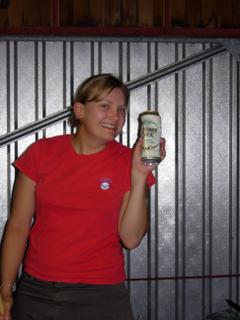Study into the eating habits of a TA....... Pure science baby
Ok so I really have too much time on my hands sometimes....
Abstract:
The habitual eating habits of a typical 25 year old London teaching assistant, a bit lost in life and always poor are examined in relation to the amount of time until a typical pay day. Baked beans, a typical cheap meal popular amongst the chosen demographic was used as an indicator to investigate how income affects quality of meals. Results show a significant (r2 = 0.96) correlation between the number of weeks into their monthly salary and the cans of baked beans consumed. Other comparable studies (Cobden, 2006; Ulenburg, 2006 & Ennis, 2006) show similar trends. The research concludes that in general poor, well educated teaching assistants often resort to beaked beans as a means of feeding themselves on a more frequent basis in the days leading up to pay day, under the assumption their money is rapidly running out.
Introduction:
Life as a young, twenty-something teaching assistant in London can be hard, especially as this particular demographic can often be well educated, intelligent and beautiful (Pannell et al, 2006). Most fall into the trap of taking up an easy job which is loads of fun, can make loads of friends, pays rubbish and is relatively easy in contrast to a job that may be better suited to their career aspirations (Pannell, 2006). Generally well educated in the areas of Psychology (Ennis, 2006; Lodha, 2006) Film and media (Cobden, 2006) or Science (Pannell, 2006) amongst others, teaching assistants often find themselves very low in cash in the days preceding pay day (Cobden, 2006; Clancy, 2006; Ennis, 2006; Ferbrache, 2006; Lodha, 2006; Pannell, 2006; Parker 2006). To stretch those scarce pounds, many teaching assistants to resort to eating copious amounts of baked beans, some even dubbing it the food of kings (Cobden, 2006). This study uses baked beans as an indicator, to determine how poor teaching assistants can really be, given that they are a cheap, versatile and substantial meal in times of need.
Methodology: The number of cans of baked beans consumed within a week were tallied by our subject at the end of every week. One can unit consisted of 475g of beans in tomato sauce. The same budget 15p Sainsbury’s brand beans were used, and the full contents of the can were to be consumed to count as one can. Beans could be consumed either on their own, or together to form gastronomical delights such as beans on toast, or baked potato or beans. For the purpose of this study, ‘accessories’ such as cheese or HP sauce could also be consumed.
Results:
The number of cans of baked beans consumed during the week increased as the number of weeks through the pay period continued (See fig 1.1).
I can't seem to put the graph in at the moment!!!!
This is a highly significant (r2 = 0.96) correlation between the two variables. The increase between the number of baked beans is more significant between the 2nd and 3rd weeks into the pay period, slightly easing off towards the end.
Conclusions:
Results show, that in general poor 25 year old teaching assistants largely resort to eating more baked beans as their money runs out, as shown by the significant correlation between the number of cans consumed within a week and the number of weeks into the monthly salary. The large increase in the amount of beans consumed between the 2nd and 3rd weeks could be explained by the subject blowing their budget within the 1st week on necessities such as clothing (Pannell, 2006) or alcohol (Pannell, 2006).


0 Comments:
Post a Comment
<< Home